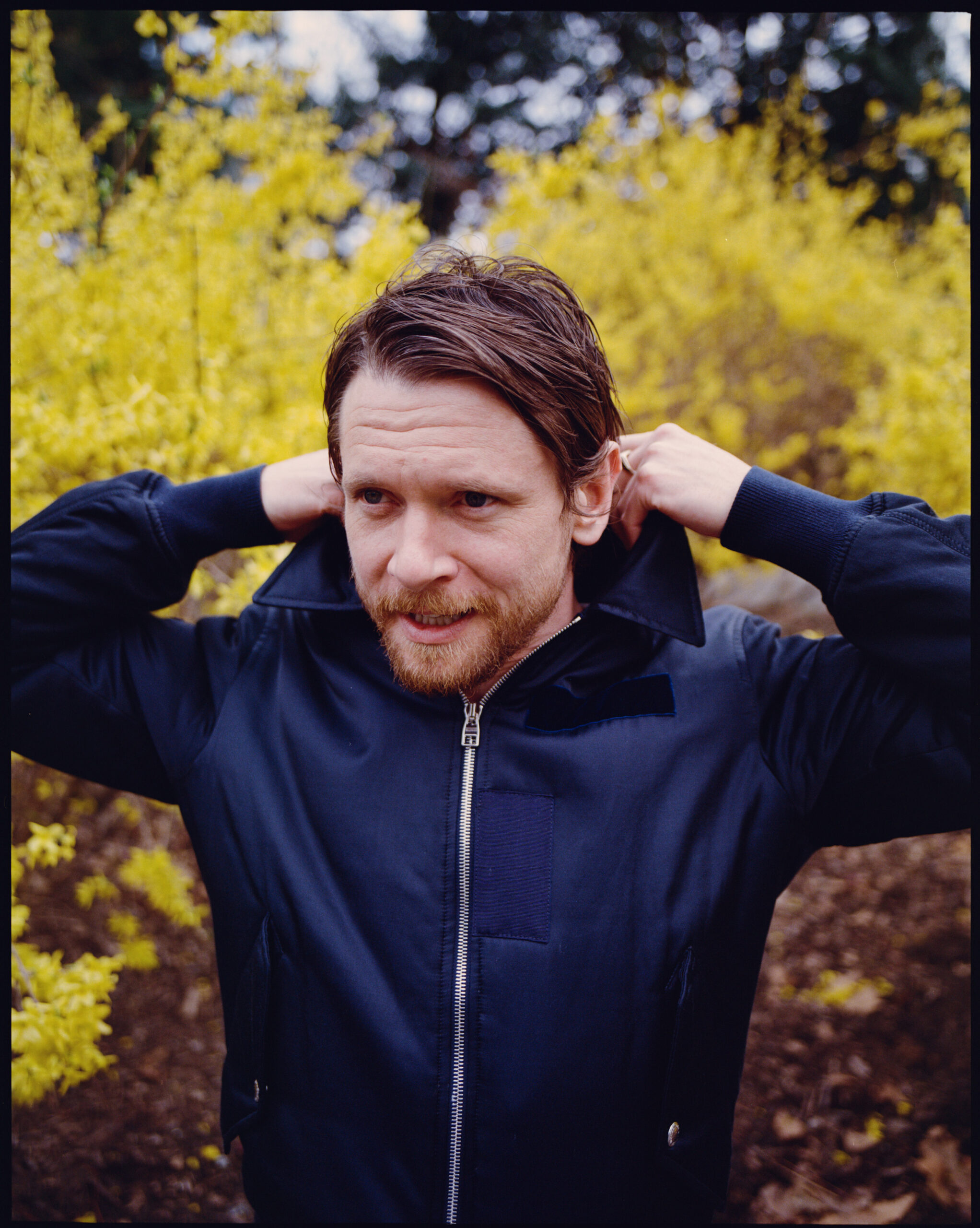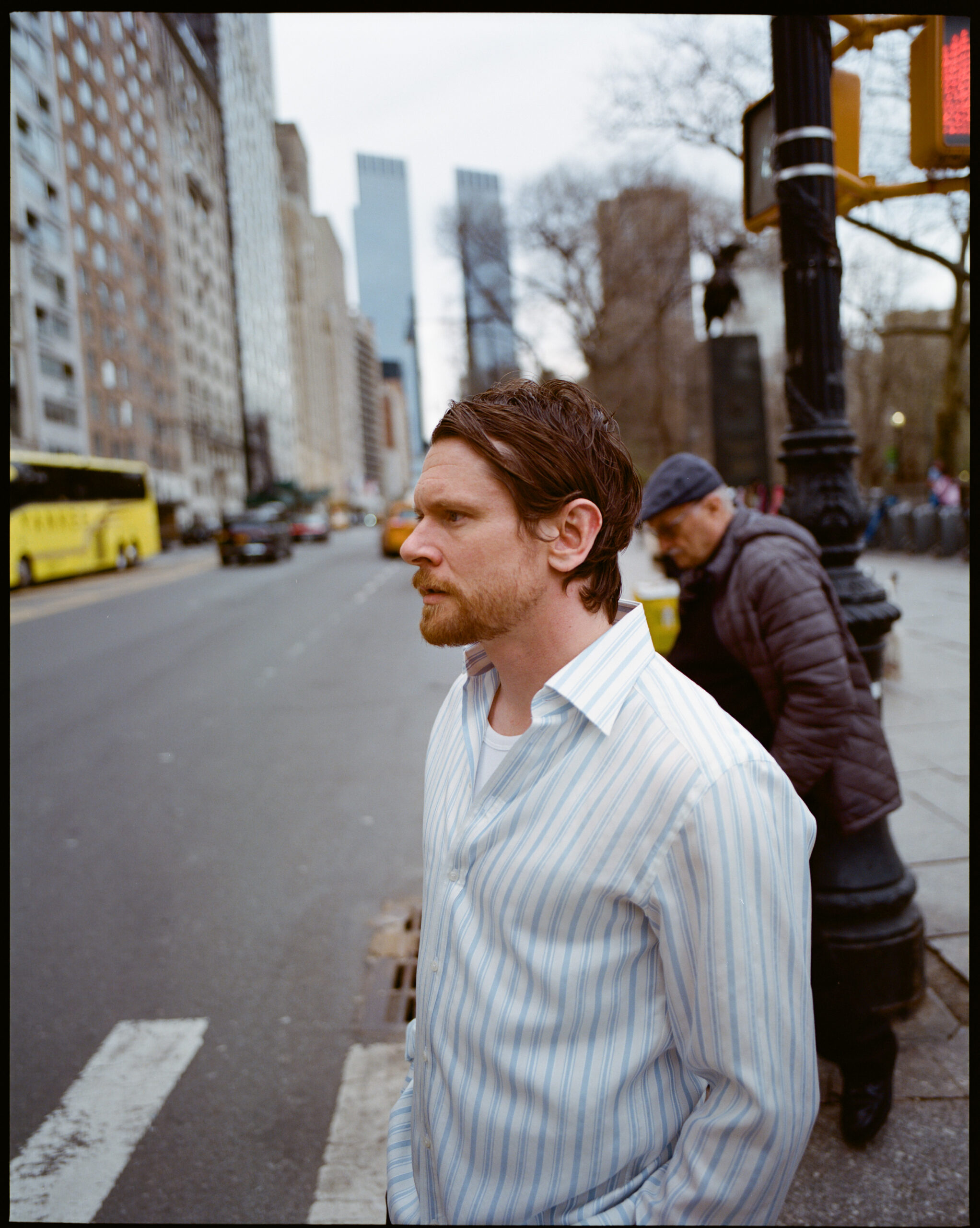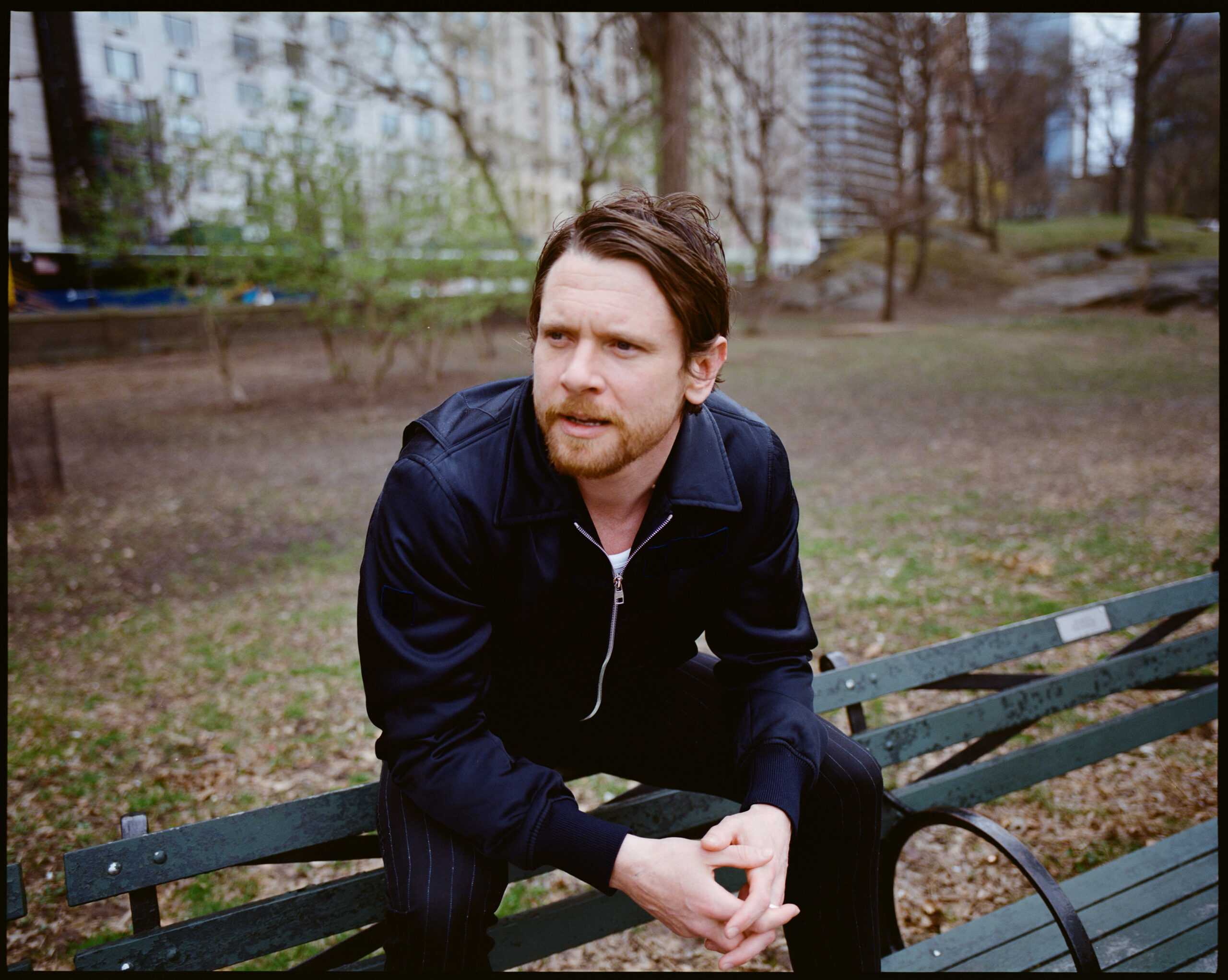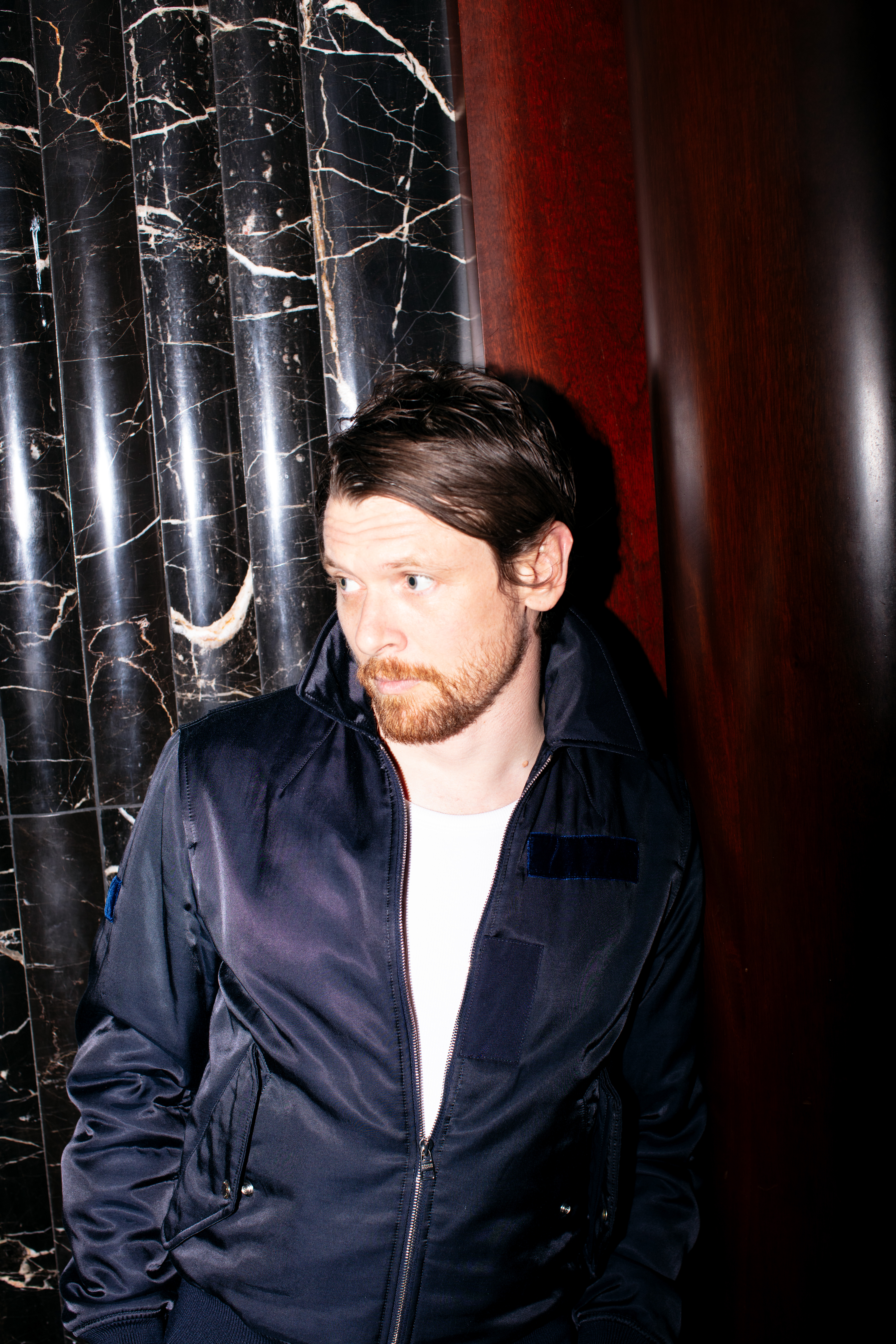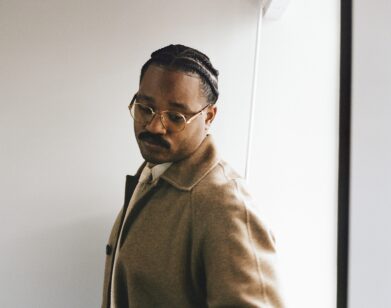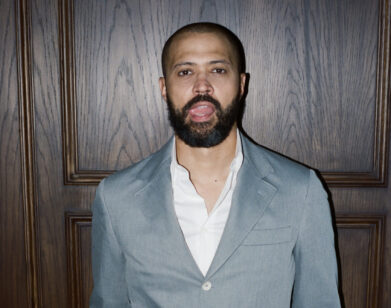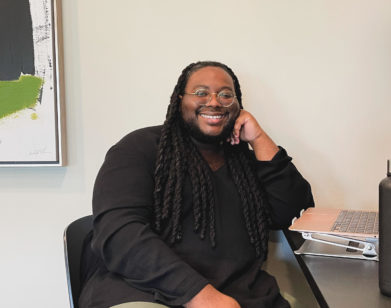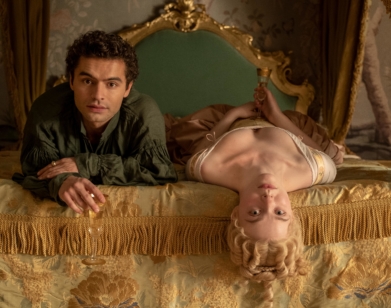VAMPIRE
In Sinners, Jack O’Connell Sucks You In
When Jack O’Connell first graced our screens, he was just a wee lad making his film debut in Shane Meadows’ critically acclaimed This Is England. Just a few years later, he entered the television pantheon with his role as James Cook in the era-defining British teen drama Skins, cementing him as a generation’s “delinquent bad boy.” Eventually, he took a stab at working behind the camera, directing the music video for the iconic rock musician Paul Weller’s song “Nothing.” More recently, he crossed the pond over to New Orleans for Ryan Coogler’s Sinners, a box-office smash that O’Connell described as “one of my favorite experiences to date.” Earlier this month, the 34-year-old actor reunited with Weller over Zoom to talk about connecting with his Irish roots, dealing with difficult directors, and why he feels his role in Sinners was written just for him.—ARY RUSSELL
———
JACK O’CONNELL: How’s tricks, man?
PAUL WELLER: All is good, mate. What are you doing? Are you resting or are you still filming?
O’CONNELL: About to skedaddle on Sunday to Australia.
WELLER: Working?
O’CONNELL: Yeah. I’m away there for three months. I dropped my daughter off there this morning, just fucking heavy heart, man. And then Derby County are doing the best to fuck me up as well.
WELLER: What’s happened? Are they getting relegated?
O’CONNELL: Looks like it. We lost a big one today against relegation rivals. Fucking no good for my nerves.
WELLER: Yeah. All right, let’s start this thing, mate.
O’CONNELL: All right, lad.
WELLER: Right then. So the first question for you, when you are prepping for a role like Remmick, where do you start? Do you start with a look, clothes, voice? How’d you find the character?
O’CONNELL: It depends really, because every job will be different. This one was all the way in New Orleans. I had about a month here before I joined everyone in New Orleans, so I couldn’t really get into the costume until I got there. So this one, you start with reading the script and you sort of say, “First and foremost where’s he from?” That would give you the dialect. I suppose wherever it’s set, that’s going to give you enough to work on. So I just took that and I thought, “I need to start sounding like I’m from flipping North Carolina.” So do the dialect sessions, I do plenty of them because it’s pressure, Paul. You think, “Right, at the end of the day if I don’t knuckle down now, if I don’t use this time wisely, I’m just going to come a cropper on set.”
WELLER: How long does that process take then?
O’CONNELL: As soon as you know you’re getting a job. That’s how I like to work, mate—get a dialect coach in early. Thankfully, I’ve got a good one now that I work with all the time. And then with this one, there were the other elements like the Irish dancing or the Irish ballads that they had me singing. So I thought, “I’ve got to have a rocket up my arse here otherwise.” And then just making sure that on your first day on set, you’ve put some of the hours in already.
WELLER: And following along what you’re saying, does your character develop over that shoot or is it totally developed before you start?
O’CONNELL: Oh no, it’ll develop when you get there as well. So whatever you’ve worked on before the shoot, it’s all malleable. Sometimes you might not even have spoken to the director much before you get there, and then they’re going to have their take and then it’s just about coming to some sort of collaboration. Something I try and tell myself all the time is just stay open, stay attentive. And you can only really do that if you’ve already got something carved out and ready to go on the day, you know?
WELLER: Yeah. And this is something I’m just asking myself, but have you ever clashed with a director? Have you got to the set and then you’ve got this character in mind and they’ve got something else?
O’CONNELL: It happens, man. I think more so if you haven’t done your homework and you’re not bringing anything to the party, you’ve kind of got nothing to counter with.
WELLER: But say if you see a character a certain way, and the director sees it totally different, what happens there?
O’CONNELL: It’s got to be a compromise. The best one I use whenever I have to is the old, “Yeah, yeah, okay. I’ll do it that way,” and then when action is called, just do it your own fucking way. [Laughs]
WELLER: And do they normally like it anyway?
O’CONNELL: Well, they’re subjected to time limits, so if they don’t, they’ve still got to move on, you know what I mean? Whether they like it or not.
WELLER: When you are doing a take and you’re really into it, is that when you feel the most free? I’ve heard other actors say this before, that when they get in that moment they feel like they’re flying.
O’CONNELL: Definitely. That’s the drug, when you’re three or four takes in and you stop thinking about what the lighting fellow over there is doing, or you get to ignore the camera a little bit, when you’re just completely in it and you’re cooking.
WELLER: Yeah, it’s the same with playing live.
O’CONNELL: Really?
WELLER: When you’re in the pocket, you ain’t got to think too much, you’re just free and you’re flying.
O’CONNELL: You can even start to enjoy it.
WELLER: It transcends and goes to another place, I think. What’s changed most in the past five years in acting for you personally?
O’CONNELL: I think the past five years, if I’m including jobs like The North Water, shooting in the Arctic fucking Circle, being on set near enough every day, playing the lead on that, you start to feel a bit more confident, I guess. You’ve got experience and you can’t buy that.
WELLER: Absolutely..
O’CONNELL: So I’d say that, mate. I’d say going into the jobs I do now, I’ve got the experience to fall back on.
WELLER: Do you like watching yourself?
O’CONNELL: Not really, man.
WELLER: Are you one of them actors who says they’ve never watched anything they’ve ever done?
O’CONNELL: No, I do, because you’re kind of expected to. By the time you’re doing press, you have to promote the flipping thing. So sometimes it’s unavoidable, but if I am watching stuff, I like to be in a theater and on my own as much as possible. But it’s horses for courses I guess, man. Sinners, I’ve watched in a full theater and it was only a little bit torturous. But it’s because you can’t do anything by that time, you can’t change it. I think that’s the struggle.
WELLER: Well, you have to let go at some point I guess, don’t you?
O’CONNELL: Definitely.
WELLER: So what’s harder, learning to lose yourself in a character or coming out of character? Not my question, mate, it’s theirs. I wouldn’t think of anything as intellectual as that.
O’CONNELL: I’d say losing yourself because you go in, you’ve sort of got a bit of a blank canvas every time. The pressure’s on. I’ve never really struggled with shaking a character off. Once you’re home, you’re home. When they call wrap, that’s it. I’m fucking on the beach, you know?
WELLER: Right, Remmick in Sinners, how much is written and how much is you?
O’CONNELL: That’s a good question. A lot of it was on the page, to the point with the Irish dancing, I used to do that as a a nipper till I was like six years old.
WELLER: Brilliant.
O’CONNELL: And you had to be careful around Derby telling people that, because it’s the kind of thing that’ll get you kicked around. Not a lot of people knew that about me growing up. So when I’m reading this on the page, I’m going “Fucking hell, this role is written for me.” So I guess, as it relates to this film, a lot of it was already on the page. There was some stuff in the moment off the cuff, and Ryan [Coogler] was cultivating that.
WELLER: What’s the detail that helps you get inside a character? Is there any one detail in particular?
O’CONNELL: Great writing always helps, and a good director. But I never know what it’s going to be until we’re there. As long as you’re surrounding yourself with it, obsessing yourself over it, things will present themself to you.
WELLER: Ryan has a rep for precision. What was it like to be inside his world?
O’CONNELL: Just one of my favorite experiences to date for sure. A Ryan Coogler set, it’s a great one to be on. He directs from the front, he’s always by the camera, he’s not tucked away by a monitor—you see him at all times. He’s part of it. I didn’t see him go to the bathroom ever. He’s just there—
WELLER: Start to finish.
O’CONNELL: Yeah. It’s just a great way to do it, man. I’m going to miss it, and any chance to do it again, fucking, I’d be a happy man.
WELLER: Do you know what kind of film it’s going to be from day one or does it reveal itself to you as you work through it?
O’CONNELL: It’s the latter for sure.
WELLER: It’s like making an album, man. You start off with a couple of ideas and it kind of is what it is, and then all of a sudden it becomes a body and then the deeper you go into it, the more you understand what it’s going to be or what it should be.
O’CONNELL: Right.
WELLER: Well, I think that’s all my questions, man. Anything else I should be asking you?
O’CONNELL: What? No, you’re a legend. Thank you so much for doing this today, mate.
WELLER: So are you, mate. And it’s a pleasure, know that.
O’CONNELL: Were you happy with the music video?
WELLER: The one you did for us?
O’CONNELL: Yeah.
WELLER: It’s amazing, man. I didn’t know whether to bring that up or not. I was going to say just a quick thing, another question, but how has it been behind the camera? I know it’s only a short promo.
O’CONNELL: I loved every second. For that being the first bash at it, it was a total treat. It felt like you’re exercising a different kind of muscle, a different muscle group. If you’ve got any more tunes you need a video for, let me know.
WELLER: You’re on the list, mate, don’t worry about that.

